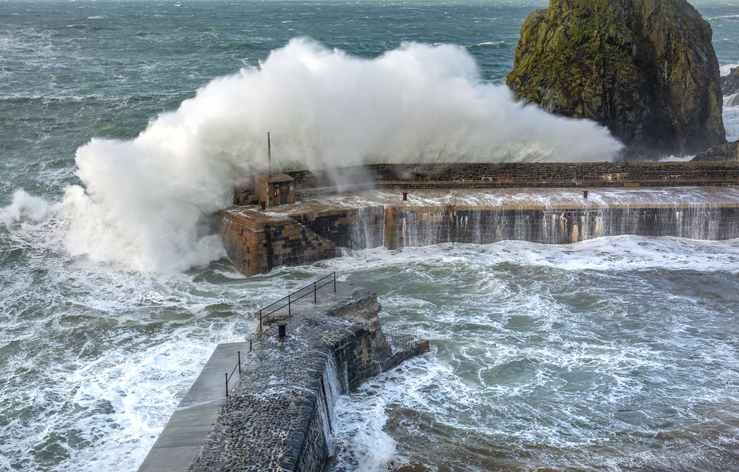Three’s a crowd: looking back to Storms Dudley, Eunice and Franklin

Authored by FloodFlash
We wind the clock back to two years ago, when Storms Dudley, Eunice and Franklin hit the UK within a week. We take a look at what caused the storms, the impacts they caused, and a case study from one of our Storm Franklin claimants.
What caused the 2022 storms?
It is not unheard of for the UK to experience back-to-back storms during the winter season. The current storm season saw four named storms within a month, with Storm Gerrit on the 27-28th December, and Storm Jocelyn on the 23-24th January.
The trio of storms in February 2022 were the result of an active North Atlantic jet stream. JBA define jet streams as ‘current of fast-flowing air high up in the atmosphere that circle the Earth.’ The North Atlantic jet stream commonly influences the UK’s weather, and can result in more frequent and intense storms arriving from the Atlantic.
What were the impacts of the storms?
Storm Eunice was largely dominated by heavy wind, but the consistent heavy rainfall that persisted throughout all three led to widespread flood alerts, particularly during Storm Franklin. River levels reached record highs in many areas, with the River Mersey in Didsbury seeing a 3m rise in a 24-hour period. An estimated 400 properties flooded, with Yorkshire and Derbyshire particularly affected.
According to the Association of British Insurers, the three storms resulted in around 177,000 insurance claims, with insurers paying out nearly £500m in claims.
FloodFlash in Storm Franklin: Tadcaster Medical Centre
At the time, Storm Franklin was our largest set of claims. One of those claims was Tadcaster Medical Centre. The centre is the only GP surgery in Tadcaster, serving many elderly patients in the area.
The centre had flooded once before in 2015, with the claim and refurbishments taking nearly a year to complete. After the flood, they struggled to get affordable cover from traditional insurers. Many excluded flood completely, while others imposed a 6-figures excesses. Their broker knew FloodFlash could provide an affordable and effective solution.
When Storm Franklin hit Tadcaster, the medical centre received their FloodFlash payout within days. As well as removing stress from the claims process, most importantly, the centre was able to return to providing care to their patients as quickly as possible.
Tadcaster Medical Centre has flood defences in place which protect them from low-level flooding and helped them choose their FloodFlash trigger depths – when water surpasses the defences, they need a FloodFlash payout.
I think anyone whose home or business has flooded knows the smell of a flood [and] the feeling of despair that it’s happened again. But it was mitigated by the fact we already knew money was coming.
Sarah, Practice Manager at Tadcaster Medical Centre





